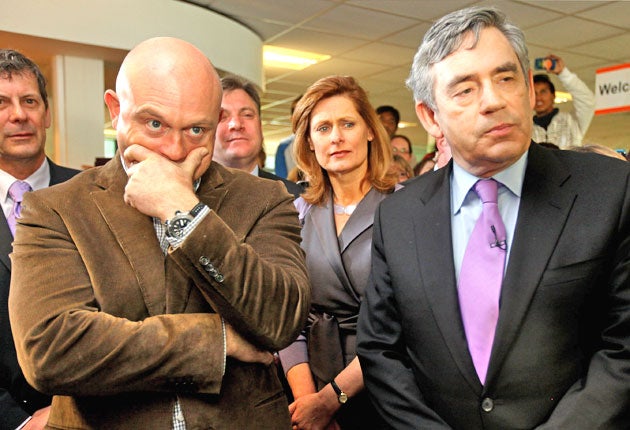Election result still in doubt with four in 10 voters as yet undecided

Almost four in 10 people could still change their mind about how they will vote in tomorrow's general election, according to a new survey.
The latest ComRes poll for The Independent and ITV News suggests that the contest is still wide open because 38 per cent of people said it was "quite possible" they would change their mind by tomorrow. Fifty-six per cent said it was not.
The Liberal Democrat vote appeared to be the most "soft", with 41 per cent of those intending to back the party saying they might switch, compared to 34 per cent of Labour supporters and 32 per cent of Tory supporters.
Younger people are more likely to be "up for grabs"; 46 per cent of 25- to 34-year-olds, 43 per cent of 18- to 24-year-olds and 41 per cent of 35- to 44-year-olds may change their mind.
ComRes also found that an estimated 2.4 million people who are certain to vote are still deciding which party to support.
In a fighting speech in Manchester last night, Gordon Brown made a passionate plea for a final hearing. He told a rally of more than 300 Labour supporters: "I want to say to those who have yet to decide: listen to what we have to say. When the last 48 hours of this campaign has passed, in that one minute in the polling booth, vote for the kind of country you believe in. And come home to Labour."
Brown aides admitted that David Cameron and Nick Clegg had "won" on haircuts and style but insisted the Prime Minister had "won" on seriousness, judgement, having a plan for the future and a commitment to the great challenges that only politics could meet. Mr Brown said: "The real X-Factor is putting an X on the ballot paper beside the person who will secure your future".
He suffered an embarrassing setback yesterday when a Labour candidate described him as "the worst prime minister we have had in this country". Manish Sood, who is standing in North West Norfolk, described himself as a "freedom fighter" and said: "All I'm trying to do is bring back the true Labour policies we had under Michael Foot. We have a Prime Minister who is incompetent, who doesn't know what he is talking about, who is not clear on his policies – and the problems are getting bigger in terms of the bureaucracy."
He was disowned by the Labour high command, which dismissed him as a "maverick" and a "dreadful candidate".
According to ComRes, the Tories have maintained an eight-point lead over Labour but would be 32 seats short of an overall majority if the figures are repeated at the election.
All parties are unchanged since our previous poll published yesterday, with the Tories on 37 per cent, Labour on 29 per cent, the Liberal Democrats on 26 per cent and other parties on 8 per cent. The new survey predicts the highest turnout yet, with 71 per cent of people saying they are absolutely certain to vote. In 2005, turnout was 61 per cent and in 2001 it was 59 per cent.
The leaders' three television debates are a popular innovation: seven out of 10 people (71 per cent) agree that such debates should be a part of all future election campaigns, while 23 per cent disagree. However, 69 per cent think that the debates have meant that the campaign has focused too much on personalities rather than policies.
Almost one in three people (28 per cent) say they have already changed their mind about which party they will support during the campaign, while 67 per cent have not. Liberal Democrat supporters are more likely to be "switchers", reflecting the surge for the third party.
Some 40 per cent of those intending to back Mr Clegg's party have changed their mind on whom to support since the election began, compared to 21 per cent among both Labour and Tory supporters.
ComRes telephoned 1,024 GB adults between 2-3 May 2010. Data were weighted to be demographically representative of all GB adults. Data were also weighted by past vote recall. ComRes is a member of the British Polling Council and abides by its rules. Full tables at www.comres.co.uk
Join our commenting forum
Join thought-provoking conversations, follow other Independent readers and see their replies
Comments
Bookmark popover
Removed from bookmarks